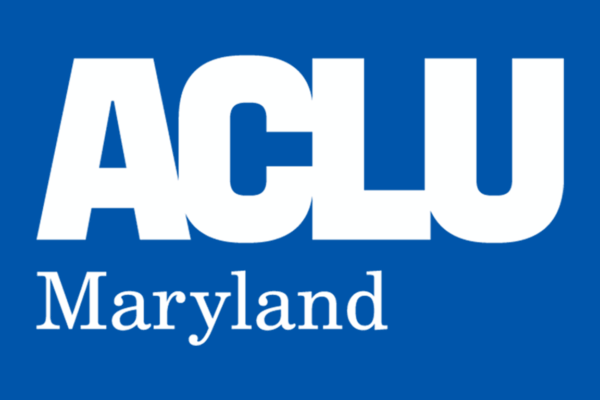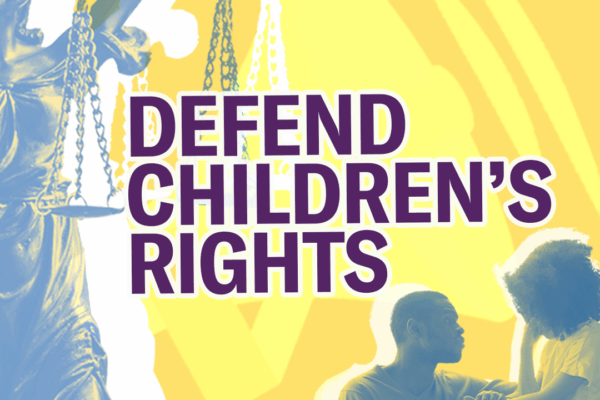We Must Not Usher in a Renewed Era of Tough on Crime Policies Targeting Black and Brown Children
ANNAPOLIS, MD – When our children who are struggling get the support they need, and when programs that work have the resources necessary to be fully implemented, public safety will improve for all of us. The Maryland General Assembly demonstrated this understanding when they spent the last five years fixing juvenile justice. However, last Thursday with the passage of HB 814, leadership and the House Judiciary Committee have decided to take Maryland back to being ranked as one of the worst human rights violators of children in the entire United States. The intentional rollback of the Juvenile Justice Reform Act comes after just one year, without any facts, data, or evidence to justify it, and without consulting all the experts who worked so hard and relied on best practices, science, and evidence-based approaches that would actually improve public safety for all of us.
Said Yanet Amanuel, director of public policy at the ACLU of Maryland: “Do we truly believe in seeing and supporting the humanity of all our children? If so, legislators need to pause, reflect on how wrong-headed it is to incarcerate children for minor offenses, how important it is that elementary school children are not subjected to the criminal legal system, and then amend this bill to reflect those values. It is a proven fact that incarceration usually harms children more than it helps them. And despite Black children only making up 30 percent of the state’s population, they make up 77.4 percent of the children detained in Maryland juvenile jails. Our elected leaders must change course to ensure we do not usher in a new generation of failed, racist, tough on crime policies — and a renewed era of super-predator propaganda.”
Said Hashim Jabar and Zakiya Sankara-Jabar, co-executive directors at Racial Justice NOW!: "Black children are not disposable, collateral damage; period! The young people of Maryland don’t need us to turn to more ineffective, failed ‘tough on crime’ policing and incarceration. They urgently need us to make deep investments in providing a world class education, community led, culturally relevant programs and fund a robust continuum of services to support the Juvenile Justice Reform Act, which will help young people make better choices and make all Marylanders safer. Investing in our children should be our highest priority."
Pre-court detention for alleged new misdemeanors will have profoundly detrimental effects on the child’s well-being. According to several studies, incarceration significantly harms mental well-being of those detained, as it results in separation from family, society, and support networks, loss of independence, a sense of purposelessness, anxiety about victimization, heightened boredom, unpredictable conditions, overcrowding, exposure to violence, and negative interactions with staff, among other adverse circumstances. Furthermore, according to studies, children in detention are 8.5 percent more likely to be found guilty and 2x more likely to reoffend than children who are not detained. Additionally, 60 percent of children who are detained do not return to school or drop out within five months. And 1 in 3 children who are detained who are diagnosed with depression developed the condition after placement in detention.
In its current form, HB 814 includes provisions that:
- Expands juvenile court jurisdiction for 10, 11, and 12-year-olds for certain offenses involving guns, weapons, sexual assault, and animal abuse.
- Allows children to be incarcerated before they have even been found guilty, even if they have only been charged with a misdemeanor. This will lead to more children being handcuffed, strip-searched, and held in a jail cell while they await a court date, even when charged with minor offenses.
- Allows police to overcharge and bypass the Department of Juvenile Services by requiring certain cases to be sent to the state's attorney's office even if the Department of Juvenile Services doesn't recommend charging them. This essentially removes a check on the system and will drastically reduce the ability to place a child on informal supervision and divert them to services.
- Extends the length of probation for children and allows the court to expand probation if a child fails to appear at a treatment program without "good cause" at least twice. As drafted, it doesn't matter if a child missed 2/2 or 2/300 appointments and will result in punishing a kid for circumstances outside of their control, such as not being transported to the appointment by a parent/guardian or if the bus didn't show up that day.
On Tuesday, the Senate Judicial Proceedings Committee will vote on the Senate version of this bill and we ask the committee to strike SB 744 entirely, except for the portion of the bill that establishes a commission to address challenges in the juvenile justice system.
Stay Informed
Sign up to be the first to hear about how to take action.
By completing this form, I agree to receive occasional emails per the terms of the ACLU’s privacy statement.
By completing this form, I agree to receive occasional emails per the terms of the ACLU’s privacy statement.



